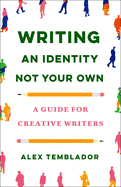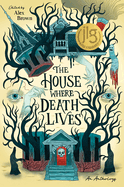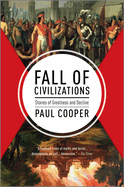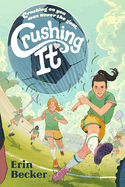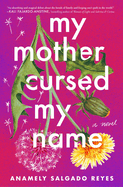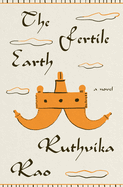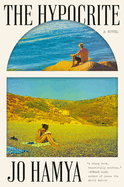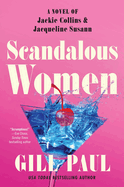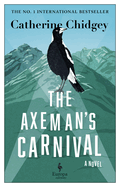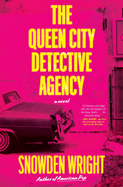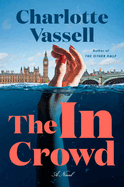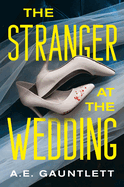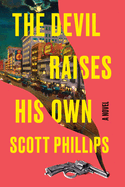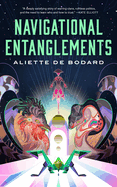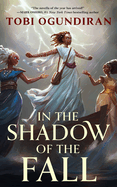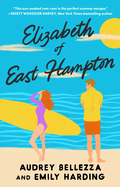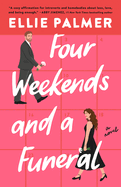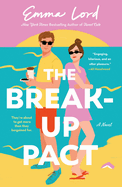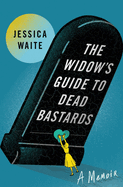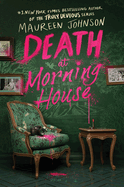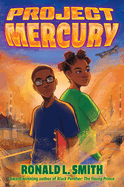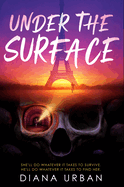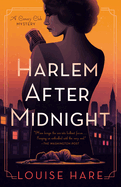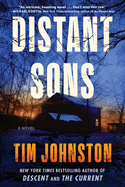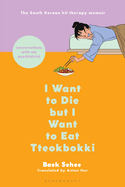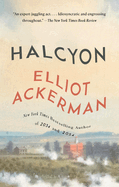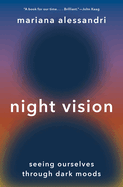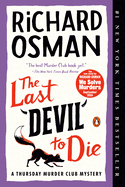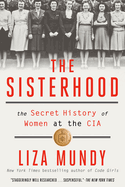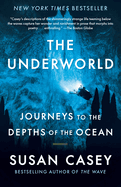Friday, August 16, 2024
This week, many of the titles we've reviewed showcase the human spirit of redemption. Willy Vlautin's novel The Horse is a "testament to hope amid a lifetime of adversity"; Anamely Salgado Reyes's "charming" debut, My Mother Cursed My Name, documents one family's "second chances to fix what what's been broken too long"; and even popular podcaster Paul Cooper's Fall of Civilizations "attests to humanity's resilience" throughout its historical survey of devastation. Plus, editor Alex Brown compiles a "compellingly horrifying" collection of stories about teens facing down nightmares, demons, and strange manifestations of mortality in the spooky YA anthology The House Where Death Lives.
In The Writer's Life, Alex Temblador, author of Writing an Identity Not Your Own, shares advice and maps out a creative process for writers who want to improve their ability to write convincingly and sensitively about people from dissimilar backgrounds.
The Horse
by Willy Vlautin
A testament to hope amid a lifetime of adversity, Willy Vlautin's seventh novel, The Horse, returns to the author's familiar Nevada setting, where 67-year-old recluse Al Ward reflects on his past and considers the odds of successfully completing one last act of kindness. Al's story opens in a freezing, abandoned single-room miner's shack in the high desert, where he exists on canned soup and tequila. Like Vlautin (The Night Always Comes; Don't Skip Out on Me), Al is a musician and a songwriter, and dozens of song titles weave throughout Al's history, including "A Drink Before Work" and "Darkness Is the Only Friend I've Ever Had." The Horse alternates between Al's life spent traveling with bands and the isolated winter when he discovers a blind horse standing in a snowstorm just outside his door.
A sympathetic character, Al has musical talent that affords him opportunities, but alcohol and naivete repeatedly derail his career and relationships. Filled with self-doubt and settled in the shack, he wonders at the horse, which is unmoving and refuses the scraps of nourishment Al offers. He contemplates the life the horse might have had, the hope it might have once had "that it would never end up blind in the middle of nowhere with no friends and no outcome other than death." Al's empathy for the horse exemplifies his compassion, and he determines that, bucking the odds, he will find help for the creature. Vlautin parallels this quest with stories of Al's loves and losses, suggesting that decency will see him through. The Horse is a beautifully atmospheric tale of sorrow and recurring hope. --Cheryl McKeon, Book House of Stuyvesant Plaza, Albany, N.Y.
Discover: A reclusive musician offers aid to an injured horse that appears one day at his shack in the high Nevada desert in this beautifully atmospheric tale.
My Mother Cursed My Name
by Anamely Salgado Reyes
Mexican American debut novelist Anamely Salgado Reyes's My Mother Cursed My Name heart-meltingly spotlights the complicated relationships between mothers and daughters. "For generations, the women in the Olivares family attempted to change the course of destiny through the power of names." Justa Olivares was the first to attempt a controlling moniker when, in 1917, she named her daughter Calamidades in twisted retribution for her own unjust life. Calamidades escaped calamities, although failure plagued her daughter, Victoria, who then begat Olvido--meaning forgetfulness--who futilely hopes to erase worries and debts.
Memorable Olvido becomes one of three main voices here--a particular challenge, because she's dead. She's survived by her daughter, Angustias, who defied her uneasy name and "grew up to be a joyful and carefree girl." Angustias's pregnancy at 16, however, not only estranged mother and daughter for 10 years, but also grandmother and granddaughter Felicitas (her "sour face" belying her happy name). With so much unfinished family business, Olvido can't reach the afterlife. But Felicitas can see and talk to the dead, which means Felicitas is likely Olvido's only path to salvation.
Reyes is a delightfully easy writer to read, her effortless prose biculturally enhanced with occasional Spanish--and references to toothsome Mexican cuisine. Without minimizing dysfunctional familial challenges--judgment, abandonment, and particularly, poetically, "longing"--Reyes creates a charming narrative about second chances to fix what what's been broken too long. Magical realism provides the redemptive opportunities, but believing is required by both characters and readers to make the magic real. --Terry Hong
Discover: Anamely Salgado Reyes's charming debut novel explores the complicated multigenerational relationships between Mexican American mothers and daughters.
The Fertile Earth
by Ruthvika Rao
Ruthvika Rao's ambitious and spellbinding debut novel, The Fertile Earth, is set during India's post-Partition years, from 1955 to 1990. It closely follows two families: the Deshmukhs, the zamindars of Irumi, "feudal landlords, rulers and administrators of law, taxation and cruelty"; and Pichamma, washerwoman to the Deshmukhs, and her two sons, Ranga and Krishna.
Rao makes the sweeping changes happening in India during those years feel personal and intimate through the friendship and blossoming romance of Vijaya Deshmukh and Krishna, who live in Irumi, "a remote Telangana hamlet." Vijaya asks Krishna if he will go with her to hunt the man-eating tiger threatening the village. In Vijaya, Rao convincingly creates a rebellious spirit, indifferent to her privilege. If their friendship is forbidden, the tiger hunt is unthinkable. Yet rule-abiding Krishna gets drawn into Vijaya's plans. He brings his older, risk-taking brother, Ranga, along on the excursion, and Vijaya brings her younger sister, Sree, to seal the girl's silence. The cataclysmic event of the tiger hunt and its fallout ripples through each of the quartet's individual paths, forever changing them and their families.
Rao movingly writes of the scars of the caste system, as Pichamma tells Krishna, "he will never in life be given the things he deserves, but only the things he earned." Through her fully realized characters, she gives readers a window into the complexities of a nation still defining itself. Rather than offering readers answers, she invites them into the hard questions, reminding them even the cruelest people are capable of compassion, and even the most sympathetic can be selfish; sometimes it's hard to know which is worse. --Jennifer M. Brown, reviewer
Discover: In her ambitious and spellbinding debut novel set during the post-Partition years in India, Ruthvika Rao gives readers a window into the complexities of a nation still defining itself.
Felt
by Mark Blagrave
Family and memory, intertwined concepts that are as complicated as they are ephemeral, are at the center of Felt, Canadian author Mark Blagrave's deceptively quiet novel. The book begins with Penelope, a woman from the small maritime town of St. Andrews, New Brunswick, who wonders if Matt, her son, is doing well at school, and if her mother, Thora, packed a lunch for him. Then Penelope remembers: she's 96, and Matt, a museum curator in Toronto, Ontario, is "nearer retirement than graduation." Matt, worried about Penelope's advancing Alzheimer's disease, travels home from Toronto to check up on Penelope and conduct research for a model villages exhibition for his museum. Matt's wife, Jennifer, is glad to have him out of town for a while.
The bulk of the novel shifts between richly detailed scenes of Matt's return to St. Andrews and flashbacks to Matt's and Penelope's pasts. The latter includes Thora's arrival in Canada from her native Norway to work as a packer at a sardine plant, Penelope's decades running a shop that sold items like Fair Isle sweaters and the "embroidered bags and felted land-and-seascapes" she and Thora made, and a female employee who may have been in love with her. Matt, meanwhile, recounts an extramarital relationship with a Toronto artist, reunites with a St. Andrews woman he dated 40 years earlier, and discovers secrets about Penelope's past. The time shifts occasionally sap the momentum, but Felt is a heartfelt paean to memory and the vagaries of time. --Michael Magras, freelance book reviewer
Discover: In Felt, Mark Blagrave tells the story of a museum curator who returns to his childhood home to deal with his mother's Alzheimer's disease and learns startling family secrets.
The Hypocrite
by Jo Hamya
Sophia's new play is being performed, and her father, a novelist, is in the audience for the first time. The play is set in the house where he and Sophia once stayed in Sicily, and as he watches the opening scenes, "Sophia's father leans forward. It's not what he thought." With those terse words, Jo Hamya (Three Rooms) underlines the tension of The Hypocrite, which threads between the unsettling theater performance and the years-earlier vacation, needling under the skin of this fraught and faltering father-daughter relationship.
Hamya writes beautiful sentences, showing off impeccable descriptions: "on a small white boat that rocked like a bell towards a catalogue of blistered cliff faces." The Hypocrite also asks excellent questions about race and class. It offers much to think about regarding being a writer, creating worlds from memory and imagination, and how that affects all parties potentially involved. And through flashes of Sophia as a younger woman, it becomes clear that the vacation depicted in the play left more marks than are shown on stage, especially regarding how Sophia viewed herself and her agency.
At its heart, though, this is a novel about familiar and familial pain, the hurts those closest can inflict, even when the harm is unintended or goes unnoticed. And it packs a punch, despite its small size. Hamya calls into question the version of masculinity performed by Sophia's father, but she doesn't completely negate him, rendering his embarrassment and confusion beautifully. Similarly, she reveals Sophia's anguish even as she doesn't quite excuse her, leaving readers to wonder exactly which hypocrite is named in the title. --Sara Beth West, freelance reviewer and librarian
Discover: Jo Hamya's The Hypocrite is an impeccable rendering of familiar and familial pain, the hurts those closest can inflict, even when the harm is unintended or goes completely unnoticed.
Scandalous Women
by Gill Paul
In her juicy 13th historical novel, Scandalous Women, Gill Paul (A Beautiful Rival) delves into the lives of bestselling authors Jackie Collins and Jacqueline Susann, both of whom received scathing criticism for writing frankly about sex and celebrating women's pleasure. Paul explores the highs and lows of both authors' careers, and weaves their stories together via Nancy White, a fictional editor who introduces them to each other.
Scandalous Women opens in 1965, as Jacqueline awaits news about the manuscript for her debut novel, Valley of the Dolls. Meanwhile, across the pond, young mother Jackie Collins is struggling with her husband's manic depression and its effects on their family life. Paul chronicles the end of their marriage, Jackie's subsequent decision to try writing fiction, and the success of her first novel, The World Is Full of Married Men. Paul shifts between the two authors' perspectives and that of Nancy.
Although Paul spends considerable time on the sexist backlash both authors received after publishing their novels, she emphasizes her three protagonists' chutzpah, courage, and plain old grit. Both women sold millions of books to a readership that hungered for their stories. Jackie and Jacqueline deal with illness and other personal issues as they continue to write racy, riveting bestsellers, and Nancy must navigate a delicate family situation as well as her complicated romantic life. But all three women, like the two authors' protagonists, ultimately believe they have a right to create their own lives and live them without apology. Scandalous Women raises a double-strength martini--with a twist--to their efforts to do just that. --Katie Noah Gibson, blogger at Cakes, Tea and Dreams
Discover: Gill Paul's juicy 13th novel dishes on the lives of provocative novelists Jackie Collins and Jacqueline Susann, and imagines the friendship they might have had.
The Axeman's Carnival
by Catherine Chidgey
Catherine Chidgey (Pet; Remote Sympathy) offers a singular combination of compassion, desperation, dark humor, and slow-building terror with The Axeman's Carnival, set in rural high-country New Zealand. The story is told through the unusual perspective of a magpie fallen from the nest and rescued by a woman named Marnie, who lives on Wilderness Road with her husband, Rob, a sheep farmer and competitive axeman. They're "under a lot of pressure," a refrain that contributes to a general sense of foreboding: a drought threatens their livelihood; Marnie mourns a lost pregnancy; she is isolated from the world beyond their farm. An ominous thread runs through their lives in ways that readers gradually become aware of.
Marnie names the magpie Tama, and Tama's view of events is curious, in both senses of the word; "that was how houses worked," he repeatedly notes, with each strange or sinister observation. The sheep station suffers setbacks, and Rob's temper and drinking become increasingly menacing, even as he trains for the annual competition where he hopes to win his 10th golden axe, which will offer both the affirmation he craves and a badly needed monetary prize.
Tama relates the story with humor and wisdom. He mimics human speech and understands it well enough to communicate, and the reader benefits from his viewpoint as he describes events, with grim foreshadowing. Rob's temper, his taste for crime shows and murdered women, his axes and admirable strength, his jealousy and Marnie's fear, all contribute to the reader's trepidation about what is to come. But The Axeman's Carnival has tricks up its sleeve, and Tama himself should not be underestimated. --Julia Kastner, librarian and blogger at pagesofjulia
Discover: Told in the voice of a magpie, with humor and wisdom, this unflinching portrait of nature picks at the thin veil between the elemental violence and drama of both human and animal worlds.
Mystery & Thriller
The Queen City Detective Agency
by Snowden Wright
Snowden Wright (American Pop; Play Pretty Blues) immerses his readers in a gritty, troubled small-town Mississippi with The Queen City Detective Agency, and introduces an indomitable protagonist.
It's the 1980s and the country is about to reinaugurate Ronald Reagan when a small-time felon called Turnip does "a Greg Louganis off the roof" of the county courthouse in Meridian, Miss. Turnip's suspicious death (by rooftop dive, or was it by poison?) and the murder he may or may not have helped arrange wind up entangled with a mythical criminal syndicate, cockfighting rings, domestic violence, child brides, centuries-old institutional racism and class discrimination, and much more.
Enter Clementine Baldwin (that's Clem or Ms. Baldwin to you) of Queen City Detective Agency in Meridian, a decaying railroad town. A disillusioned former cop, Clem is also a Black woman in a city, state, and nation that respects neither. Clem is a quintessential hard-boiled detective with entirely legitimate beefs with the world around her. She drinks too much, but who wouldn't? For her second-in-command, she went looking for a white man for a prop, but instead she found Dixon Hicks, a prop who turned out to be a good partner and even a good friend.
Clem is a smart, courageous, flawed heroine, with plenty of dark humor and a storied past. Wright's prose is clever and delightfully funny even while handling serious social ills. The Queen City Detective Agency is a remarkable work of Southern noir, featuring crackpot characters both silly and sinister, a longstanding history of greed and white privilege, and an unforgettable private investigator. Readers will be anxious for more featuring Ms. Baldwin. --Julia Kastner, librarian and blogger at pagesofjulia
Discover: A disgruntled PI and a plot as wildly complicated as the history of the American South itself combine in this spectacular, darkly funny mystery.
The In Crowd
by Charlotte Vassell
Picking up where her debut, The Other Half, left off, Charlotte Vassell's The In Crowd marks the second outing for Metropolitan Police Detective Inspector Caius Beauchamp, who's a different sort of investigator: a tenderhearted, biracial, working-class bloke with a politics degree. This time around, Vassell delivers an amusing and substantive rom-com-flavored mystery as Beauchamp, stood up by his Tinder date, meets an alluring woman at a fringe theatrical production where a man sitting in their row unceremoniously dies.
The theatergoer's death sparks an inquiry into the 2004 disappearance of a 14-year-old from a girls' boarding school, but that's not the only cold case Beauchamp and his team warm up. The discovery of a woman's body in the Thames relaunches an investigation into the whereabouts of the man who seemed to be behind a decades-earlier multimillion-pound pension scheme. And, yes, the two cases have something--specifically someone--in common.
Apparently cognizant that restricting her point of view to just one of her charismatic characters would be stingy, Vassell allows her narrative to wander--or is it snooping? Her cast's choicest, cattiest thoughts tend toward the topics of class, status, and English identity; "No one called Rupert was broke" someone thinks approvingly about a character who will be familiar to readers of The Other Half.
Readers of The In Crowd should find both cold cases resolved to their satisfaction. As for Beauchamp's extended-family dynamics, Vassell seems to be just getting started messing them up--good news for fans of this droll and meaty series. --Nell Beram, author and freelance writer
Discover: The second book in the Detective Inspector Caius Beauchamp series is an amusing, substantive rom-com-flavored mystery driven by a couple of cold cases with something in common.
The Stranger at the Wedding
by A.E. Gauntlett
A love story with ghastly undertones is the focal point of British author A.E. Gauntlett's splendid debut novel, The Stranger at the Wedding, a contemporary thriller featuring a missing wife and the diary that is the key to her disappearance.
Annie was raised in the English countryside, her childhood marked by loss. Now an associate professor teaching Greek mythology at King's College in London, Annie insists she isn't looking for love. But when she meets fellow train commuter Mark, a handsome surgeon, sparks fly and Annie lets herself be swept away. Questions swirl about his first wife, Hope, who went missing several months ago, but all Annie can see in Mark is a man who has suffered a great deal and is as eager as she is to leave the past behind.
With scenic London as their romantic backdrop, Annie and Mark enjoy a whirlwind courtship. Their wedding is as glorious as could be, despite an eerie wedding crasher who stares unsettlingly at Annie. Annie's narrative runs parallel to that of Cameron, a former police detective retained by Mark's father, Frank, to find Hope. Hope's anguished voice, in the form of diary entries, offers disturbing clues about her marriage.
Soon after Annie and Mark's honeymoon, the stranger from their wedding reappears, unearthing unwelcome ghosts from the couple's former lives to invade the rosy future Annie envisioned for herself and Mark.
The Stranger at the Wedding is a dark domestic drama with twisty surprises that are sure to delight thriller fans. --Shahina Piyarali
Discover: This dark domestic drama involves a newlywed London couple, a missing first wife, and the diary that is the key to her disappearance.
The Devil Raises His Own
by Scott Phillips
Marilyn Monroe famously said, "Hollywood is a place where they'll pay you a thousand dollars for a kiss and fifty cents for your soul." Soulless or not, the actors are paid to do a lot more than kiss in Scott Phillips's The Devil Raises His Own, a smart, witty, and fleetingly obscene noir set in early Hollywood's blue movie world.
Phillips (The Adjustment) depicts Hollywood of the mid 1910s as a Wild West of dreamers, porn purveyors, and everyday people running from their pasts. Among the novel's dozen-odd principal characters are Trudy Crombie, who acts in blue movies to support herself and her two children following her odious husband's desertion; pornographer Clyde B. Grady, who wants to make "a better dirty flicker"; and George Buntnagel, a gay director who presents Grady with the idea to make high-end porn with all-male casts.
Phillips plays everyone's self-interest and survival tactics for comedy as they navigate adultery, blackmail, murder, and (somehow) more. There are a few saints swimming in the sea of sleaze, but readers who approach the novel betting that they won't find themselves rooting for the pornographers will likely lose a mint. While the setting is largely seedy, there's grace in Phillips's dialogue, which hews to the style of early screwball comedies. The Devil Raises His Own is a slow-build novel whose separate strands finally come together at a star-studded war bond rally that gives attendees (and readers) the promised spectacle--just not the kind that was advertised in the newspaper. --Nell Beram, author and freelance writer
Discover: This smart, witty, and fleetingly obscene noir depicts Hollywood of the mid 1910s as a Wild West of dreamers, porn purveyors, and everyday people running from their pasts.
Science Fiction & Fantasy
Navigational Entanglements
by Aliette de Bodard
Navigational Entanglements by Aliette de Bodard (A Fire Born of Exile) is an exciting space opera filled with rivalries and fraught politics, and featuring well-drawn characters. The novel's world combines the supernatural powers of xianxia-style combat and a sci-fi setting; navigators use their powers to fight and to guide ships through the Hollows, a kind of subspace that enables faster-than-light travel. The dangers of the Hollows are multiplied by the deadly presence of inter-dimensional jellyfish called tanglers. When a tangler escapes from the Hollows, a navigator is assigned to work with a ragtag collection of juniors from other clans to locate it.
Việt Nhi is a capable but junior navigator of the Rooster clan. Not only does she struggle to get along with the other clans, she has trouble understanding and communicating with people in general, often finding them too "unpredictable" and "messy." One of these is the volatile assassin Hạc Cúc, who is trying to live up to the impossible standard set by her wise and talented mentor. She constantly sees herself as not good enough, which sets her on a path to miscommunication and strife that threatens everything she wants. On the other hand, when Hạc Cúc softens slightly and shares some of her vulnerabilities, Nhi is terrified that she'll say the wrong thing and destroy the romance developing between them.
The novel's sapphic romance is sweet and satisfyingly spicy, and the found-family dynamic that develops is as cozy as the many cups of tea brewed throughout the story. De Bodard has written a fast-paced read full of tenderness and delightful sci-fi monsters. --Carol Caley, writer
Discover: This exciting space opera features dynamic world building, queer romance, and well-drawn characters.
In the Shadow of the Fall
by Tobi Ogundiran
Fantasy lovers can never have too many fun, exciting adventures. Tobi Ogundiran's novella, In the Shadow of the Fall, fills the need and then some. Ashâke is desperate to be accepted into the order of priests at the temple where she's lived her whole life, but the orisha refuse to speak to her. Absent this critical rite of passage, she languishes as an acolyte while others pass her by. When she attempts a forbidden magical rite, she sets off a sequence of events that threatens all of humanity--and the gods as well.
Ogundiran (Jackal, Jackal) creates an immersive and fascinating world, pulling from Yoruba myth and religion. These elements, including the bard-like griots and the orisha of water and fertility, are gorgeously depicted. The griots have an unusual and compelling type of magic: they're historical storytellers who transport their listeners into the physical world of their story, immersing them in the sounds, sights, and smells of the past. It's a dynamic that enables some climactic thrills.
The novella is taut and fast paced, and its ending both satisfies and whets the appetite for the second book of the planned duology. Readers will relate to Ashâke's quest for purpose and belonging, and perhaps also to some of the bad choices she makes along the way. That theme of belonging becomes particularly vivid when the matron of the griots takes Ashâke back to their camp, caring for her in a way she's never experienced. It's a poignant moment in a narrative full of heart, magic, and danger. --Carol Caley, writer
Discover: Tobi Ogundiran offers a taut fantasy novella rooted in Yoruba myth and religion that will have readers eager to read the next installment of the planned duology.
Romance
Elizabeth of East Hampton
by Audrey Bellezza and Emily Harding
In their second 21st-century Jane Austen remix, Elizabeth of East Hampton, Audrey Bellezza and Emily Harding (Emma of 83rd Street) reimagine the Bennet family as year-round residents of the Hamptons. Avid surfer Lizzy has long dreamed of being a journalist, but since her dad's stroke, she's been stuck managing the family's struggling bakery while Mrs. Bennet embarks on her latest multilevel marketing scheme (and worries about her daughters' romantic prospects). Enter Charlie Pierce, an affable, eligible bachelor escaping Manhattan for the summer, and his brooding friend, Will Darcy. Their lives, of course, get tangled up with the Bennets' in numerous ways, and the fun comes from watching the authors blend the familiar plot points with smart, snarky modern-day twists.
Readers will relish the interpretation of Mary as a blue-haired punk ecoterrorist, the emergence of Kitty's sharp business sense, and Lydia's aspirations to be (what else?) an influencer. And although Lizzy loves her sisters, she (like Austen's Elizabeth) doesn't always notice what's going on under her nose. While this is primarily her story, all five sisters play a part in changing the course of their family's fortunes. As for Darcy, his blunt manner hides a sensitive nature and a fierce loyalty to his friends; Bellezza and Harding explore his inner landscape and allow Lizzy to do some Darcy-studying of her own.
Crackling with witty dialogue and sly nods to Pride and Prejudice, Elizabeth of East Hampton is a fresh, entertaining take on Austen's classic. --Katie Noah Gibson, blogger at Cakes, Tea and Dreams
Discover: This fresh, entertaining 21st-century Pride and Prejudice remix puts the Bennets on Long Island and reimagines Elizabeth as an avid surfer and aspiring journalist.
Four Weekends and a Funeral
by Ellie Palmer
Four Weekends and a Funeral, a refreshing, seriocomic romance by first-time author Ellie Palmer, is set in the Twin Cities of Minneapolis-St. Paul, Minn.
Dependable Alison Mullaly dated impulsive, wanderlust-filled Sam Lewis for only a few months. Sam was an adventurer and thrill seeker, while Alison lived a more cautious and deliberate life, which included undergoing a preventative double mastectomy because of her family's history of breast cancer and her positive test genetic result for the BRCA1 mutation. Though she tried, Alison could not keep up with Sam, and their relationship came undone. Six weeks after dumping Alison, Sam died in a car crash. At his funeral, his sister, Rachel, asks Alison to pretend that they never broke up. Rachel feels that her grieving parents will find peace if they believe that Sam was about to finally settle down with a "nice girl" like Alison.
After Sam's funeral, his family asks Alison and Sam's best friend, Adam Berg, to clean out Sam's apartment. Alison finds Adam uptight, ill-kempt, and grumpy. He, too, harbored issues with Sam, and their relationship was secretly fraught. However, over four weekends, as Alison and Adam pack up Sam's things, they lock horns until romance blooms. This leads them to grapple with their conflicted feelings about Sam, themselves, and each other.
Wry banter, compelling subplots, and escalating sexual tension infuse this sparkling enemies-to-friends-to-lovers story that examines sadness and guilt, loss, and grief. --Kathleen Gerard, blogger at Reading Between the Lines
Discover: This refreshing seriocomic, enemies-to-friends-to lovers story examines guilt, loss, and grief--en route to self-discovery.
The Break-Up Pact
by Emma Lord
In The Break-Up Pact, her sweet, steamy first novel for adults, Emma Lord (The Getaway List; Tweet Cute) whips up a second-chance love story laced with grief, complicated family dynamics, the vagaries of viral Internet breakups, and some truly wacky scone flavors.
After her sister Annie's death, June Hart returned to her hometown of Benson Beach to run Tea Tide, Annie's built-from-scratch beachside bakery. But amid June's struggles to keep the shop afloat, she got dumped on national television. Now, June is trying to deal with her public humiliation and the local reporters, bloggers, and influencers invading Tea Tide. She is shocked when her childhood crush, Levi Shaw, shows up at the bakery after his own headline-making breakup. The two agree to fake date to capitalize on the attention, secure more sales for Tea Tide, and help Levi win back his ex. But as her summer with Levi continues, June admits to herself that although their dates may be fake, her feelings for Levi definitely are not.
Lord sensitively explores grief and other complex emotions, digging into June's reluctance to change anything at the bakery after Annie's death and Levi's hesitance to pursue the writing career he wants. As the two spend time together, they also revisit their shared history, gaining fresh perspectives on past experiences and figuring out how to move forward.
Packed with zany situations and tasty desserts--plus a dash of the unexpected, such as pizza sprinkled with Pop Rocks--Lord's novel is a treat for readers who like their romance to carry some emotional heft and spill plenty of tea (literal and metaphorical). --Katie Noah Gibson, blogger at Cakes, Tea and Dreams
Discover: Emma Lord's sweet, steamy first novel for adults spills the tea (literal and metaphorical) in a plot that combines viral breakups, fake dating, wacky scone flavors, and lingering grief.
Biography & Memoir
I Want to Die but I Still Want to Eat Tteokbokki: Further Conversations with My Psychiatrist
by Baek Sehee, transl. by Anton Hur
I Want to Die but I Still Want to Eat Tteokbokki: Further Conversations with My Psychiatrist is the sequel to South Korean author Baek Sehee's therapy memoir with a nearly identical title (I Want to Die but I Want to Eat Tteokbokki), in which the author grappled with her rising feelings of anxiety and alienation.
Readers pick up where Baek's first book left off, as she navigates the murky waters of persistent depression, leading her to self-harm and to check herself into a hospital. Her therapy sessions are a window into the process of untangling her thoughts and behaviors. Baek wrestles with self-doubt and societal pressures, and yearns for connections and meaning that feel achingly out of reach: "You know how extreme I am, if I ever meet someone I don't like for some reason, I don't stop at 'What a weird person' but go straight to 'I hate all people!' "
This is not a book with a neatly packaged solution. Therapy here is a winding road paved with introspection and small victories--and her therapist's approach is quite a bit different than what readers outside of Korea might expect. Baek's experience feels distinctly Korean as she highlights the cultural nuances of seeking help and the societal stigmas that can persist.
Baek's memoir is ultimately hopeful. Through chronicling the therapeutic process, her self-awareness increases, and she gains the strength to put into place the building blocks of healing.
This book is a message of solidarity for anyone struggling with experiences like Baek's, and a reminder that even the smallest steps toward self-awareness can be a triumph. --Elizabeth DeNoma, executive editor, DeNoma Literary Services, Seattle, Wash.
Discover: In this sequel to her therapy memoir, South Korean author Baek Sehee offers an intimate, honest account of the laborious journey of rebuilding her mental health.
The Widow's Guide to Dead Bastards
by Jessica Waite
Can we every really know someone? The provocative intrigue of this question propels The Widow's Guide to Dead Bastards, a chilling, probing memoir by Jessica Waite.
Calgary, Alberta-based Waite and her husband, Sean, had been married for 16 years. Waite deeply loved Sean, a corporate CEO deemed in "perfect health" who was on his way to a bright future. While Sean was traveling for business in Texas, Waite missed four phone calls and discovered that an emergency room nurse in Houston had been calling: Sean suffered a sudden heart attack and died. This devastating news tasked Waite with having to explain Sean's death to their nine-year-old son, Dash, and with navigating the bureaucratic minutia of bringing Sean's body home and planning an emotional funeral.
Mourning and mired in grief, Waite begins to reminisce--and convey to readers--anecdotes, good and bad, about her marriage. The fallout from Sean's death was compounded when Waite uncovered shocking secrets that revealed how little she really knew about the man with whom she had built a life over 17 years. These include Sean's drug use, pornography addiction, compulsive overspending, and extramarital affairs.
Waite's first book is darkly intense, but her wry storytelling style, along with short chapters, adds needed levity. As she processes, copes with, and reconciles the truth about her husband's life, the courageous Waite ultimately discovers--and comes to accept--hard truths about herself. -- Kathleen Gerard, blogger at Reading Between the Lines
Discover: In this provocative memoir, a wife and mother grieving her husband's death discovers shocking secrets about him that further unsettle her world.
History
Fall of Civilizations: Stories of Greatness and Decline
by Paul Cooper
The collapse of once-great civilizations is a topic of significant interest in the 21st century, as the large and dedicated audience for Paul Cooper's podcast, Fall of Civilizations, attests. In this book by the same name, Cooper (River of Ink) traces the declines of 14 civilizations and ends with an emotionally affecting epilogue that looks ahead to the fall of modern civilization many people believe to be imminent.
Cooper begins with the Sumerians and creates a sense of simultaneous awe and melancholy. Each chapter opens with an anecdote or excerpt from a narrative in which people in the featured civilization's future discover its ruins and wonder about those who created such impressive structures, mirroring the way readers might also approach the civilization. Following these retrospective openings, the rest of each chapter builds intimate looks at people's lives, from the birth of their civilization to its height and ultimately to its collapse. Most chapters conclude by excerpting laments written by people from the featured civilization, which emphasizes the personal and emotional aspects of the civilization's decline.
The causes Cooper traces include the expected wars and conquering of one civilization by another, but he also demonstrates the contributing complexities of climate change, natural and man-made changes to rivers, and technological innovation. Cooper's extensive array of sources, including archeological and historical scholarship as well as chronicles, poetry, and correspondence contemporary to each civilization, paint vivid pictures and invites readers to imagine experiencing this history for themselves.
Despite its focus on devastation, Fall of Civilizations attests to humanity's resilience as it attempts to answer the question, "What will become of us?" --Dainy Bernstein, freelance reviewer
Discover: Fall of Civilizations draws from the popular podcast of the same name to tell fascinating stories of collapse across history and marvel at ancient ruins and the complex societies that created them.
Reference & Writing
Writing an Identity Not Your Own: A Guide for Creative Writers
by Alex Temblador
Acclaimed author, educator and travel journalist Alex Temblador (Half Outlaw; Secrets of the Casa Rosada) gives writers an effective and thorough handbook to help them think through one of the most important aspects of creative writing: how to write characters and identities outside of the spaces that they themselves embody. Writing an Identity Not Your Own is more than a how-to; Temblador does not merely outline dos and don'ts. Rather, she gets into the hows and whys: how certain kinds of writing can reveal bias and have unintended negative impacts, and why it is paramount for authors to be aware of the power dynamics in the public sphere that see certain voices more commonly written from outside of communities than within them.
The book is divided into three sections. The chapters in "Before You Write" provide background information on what the book will cover, while those in "As You Write" break down elements, such as characterization and dialogue, for authors to consider during the writing process. Perhaps most importantly, the third section teaches readers how to edit work effectively to check for bias, stereotypes, and tropes. Each chapter begins with a "quick chapter navigation" guide, making it easy to dip in and out, and to use as a workbook, and includes a writing exercise to apply the topics discussed. Temblador includes supplementary material, such as books, websites, online discussion groups, and suggestions for further learning at the end of the book, as well as via QR codes throughout the text. This is an essential resource for every author's shelf. --Michelle Anya Anjirbag, freelance reviewer
Discover: Author and educator Alex Temblador provides a comprehensive guide for writers who want to write outside of their own identities.
Children's & Young Adult
The House Where Death Lives
by Alex Brown, editor
Alex Brown (Damned if You Do) ups the fright ante in her second anthology of YA horror, The House Where Death Lives, with a superb ensemble of nightmarish stories about demons of all kinds.
Every teen in this collection has faced death in some form. A teen bares her heart to the rotting specter of a deceased friend in a tragic tale by Tori Bovalino ("Bloom"), while a disquieting version of a girl's dead mother lurks in a hallway in "Vanishing Point" by Traci Chee. Other lives drift perilously close to their end. A starving girl locked in her attic befriends the invisible entity within her mirror in "Good Morning, Georgia" by Courtney Gould. Fear, though, is not a certainty for them all--some see darkness as a gift.
Unfettered emotions run rampant here: envy that breaks, bitterness like expired food, regret that can "destroy a person quicker than any poison." Blistering prose breathes life into malevolent beings, describing "vertebrae popping out of place" or breath "reeking of meat, raw or rotten." There is guilt like "a rabid beast with thick claws" and grief that feels like a "vacuum kind of silence." Contrasting this torrent of foreboding, however, is joyous love.
The tales are grouped according to the architecture of their shared setting (Attic, Down the Stairs, Second Floor, First Floor, Grounds) and connect in other, unsettling ways. Gay, bi, sapphic, and nonbinary characters are beautifully represented. Incorporated too are strong multicultural identities (Jamaican, Lebanese, Chinese, among them) and mythology. Compellingly horrifying. --Samantha Zaboski, freelance editor and reviewer
Discover: This compelling YA horror anthology of nightmarish tales features a diverse cast of teens encountering strange manifestations of their complex emotions surrounding death.
Crushing It
by Erin Becker
In this dynamic, touching, and authentic novel about the complexities of crushes, two former friends navigate the breakup of their friend group--the "Fearsome Foursome"--even as they unwittingly develop crushes on each other on an anonymous online school forum.
"Magic Mel" Miller is a "peppy and hopeful" eighth grade soccer captain with a frequently half-untucked jersey and a "messy blond ponytail." Tory McNally, with shiny brown hair and an always neatly steamed soccer uniform, wants "life to be organized. Predictable. Right." Mel and Tory were part of an inseparable quarte until last year, when Tory called Mel the "biggest disaster in school." In the wake of the friend breakup, the girls struggle to locate their own identities within new friendships. Tory wonders "what it would feel like, to just be yourself around your friends," and Mel asks herself what one should do "if you know that your best friend might be a bad best friend." At the same time, both girls have been communicating with a "secret online pen pal" through their school message board. Each develops feelings for this anonymous person with whom they feel they can be their truest selves.
Debut author Erin Becker skillfully takes on the middle-school tensions that arise when families, friends, sports teams, and love interests seemingly conspire to undermine us. Using Mel and Tory as dual narrators gives readers each girls' limited perspective, showing the truth of the individual despite what the girls believe about each other. Becker has convincingly captured the all-over-the-map feelings of middle-school relationships and created characters who are complex, sincere humans. --Emilie Coulter, freelance writer and editor
Discover: Two eighth grade girls navigate ex-friendship and romance in this fast-paced and true-to-life novel about the thrill of crushes during messy middle-school life.
Death at Morning House
by Maureen Johnson
Secrets abound in Death at Morning House, a sure-handed, suspenseful story that combines ominous mystery, droll wit, and queer romance.
Marlowe Wexler's first date with longtime crush Akilah Jones does not go well. After a romantic dinner at the Cheesecake Factory, Marlowe brings Akilah back to the cottage she's housesitting and her petrichor-scented candle turns Marlowe into an accidental arsonist. Marlowe decides she'll "ghost... the world," but instead receives a job offer that will let her leave town altogether: leading tours at an infamous Prohibition-era mansion. The abandoned manor, where two of the extremely wealthy Ralston family's children died tragically on the same day, is being opened to the public for one summer. Marlowe agrees to join the crew, only to learn upon arrival that her colleagues are all locals who have already started the season--and she is replacing a guide who drowned after falling off a cliff. Buried secrets bubble to the surface, Marlowe's boss goes missing, and a "swirling, biblical mess" of a storm turns the tour guides' spooky ice cream party into a nightmare. As Marlowe watches history repeat itself, her brain begins to "assemble the pieces" and she homes in on the mansion's truths.
Maureen Johnson (Truly Devious series) has written an atmospheric, entertaining detective story with multiple entwined mysteries. Marlowe's contemporary narration is augmented by accounts from various Ralston children in 1932, effectively capturing readers' curiosity. Johnson imbues her writing with ominous undercurrents, yet Marlowe's wry voice manages to entertain, even as tragedies unfurl. This is a gripping, darkly funny, and gratifying YA mystery. --Lynn Becker, reviewer, blogger, and children's book author
Discover: Secrets abound in this atmospheric, entertaining YA detective story that combines ominous mystery, droll wit, and queer romance.
Project Mercury
by Ronald L. Smith
In Project Mercury, a lively and tense near-future science fiction novel, teens Ike Pressure and Eesha Webb are determined to unearth the truth about the secretive history of the Mercury Army Base they call home.
Thirteen-year-old Ike is a military brat who lives with his parents in Nevada on a remote military installment that once housed a nuclear bomb test site and is located a short distance away from Area 51. Ike knows what his dad's job is--military recruiter--but his mom is a "US Army Specialist" and what her job really entails is anyone's guess. While unpacking boxes in the basement of his new home, Ike discovers an old shortwave radio that sends cryptic messages over the staticky airwaves. At the same time, his parent-appointed "best friend," Eesha, arrives at Mercury interested in the base's clandestine history. Despite the Black teens' general disinterest in each other, they bond over the hush-hush history of their new home. Ike and Eesha begin working together to decipher the mysterious transmissions, hoping to uncover the truth about Mercury Base and the aliens that allegedly inhabit it.
Project Mercury is a gratifying and gripping work of science fiction from Coretta Scott King/John Steptoe Award-winning author Ronald L. Smith (The Owls Have Come to Take Us Away) that offers a vision of a future in which humankind has largely steered away from the evils of systemic racism, environmental degradation, and a hawkish desire for constant warfare. Ike's and Eesha's dual narrations are welcoming and accessible and give readers extreme doses of intrigue and action. --Cade Williams, freelance book reviewer
Discover: This lively and tense near-future science fiction novel features two teens determined to unearth the truth about the strange happenings at the Mercury Army Base.
Under the Surface
by Diana Urban
Under the Surface is a beautifully executed, subterranean adventure-gone-wrong, with a satisfying romantic angle and enough drama to keep the narrative hurtling forward.
Seventeen-year-old Ruby is in Paris with her class and, with the help of close friends Sean (who makes Ruby feel "warm and tingly") and Val, Ruby is looking for filming locations for her YouTube channel. When Val sneaks off to a party, Ruby gets worried. Despite her "tangled mess" of blonde hair and "jet-lagged" bloodshot eyes, Ruby slips away to bring Val back. She's caught sneaking out, though, by valedictorian Olivia and salutatorian/bestie-turned-nemesis Selena, who get pulled into the unfolding misadventure.
The girls find Val with "hottie" Julien, about to head off to a party in the city's catacombs, a perfect filming location. Most of the place is off-limits to the public, but Julien swears he's a "cataphile" who knows his way around the tunnels that house "the skeletal remains of six million long-dead Parisians." But Selena climbs down a broken ladder and, when the others reach the spot, the "only sign of Selena is her blood." The group gets lost and are chased by phantom whisperings, booming drums, and people in skull masks wielding knives. Meanwhile, at street level, Sean has discovered Ruby and Val are missing and desperately chases down any lead he can find.
Diana Urban (These Deadly Games) has found in Paris's catacombs the perfect setting for a creepy thriller. The nightmarish adventure plays out against a backdrop of high school intrigue, including the (possibly) budding romance of Ruby and Sean, shifting loyalties, romantic mishaps, and betrayal. This well-rounded, gripping survival story has as many twists and turns as the catacombs themselves. --Lynn Becker, reviewer, blogger, and children's book author
Discover: Under the Surface is a beautifully executed, subterranean adventure-gone-wrong set in Paris, with plenty of drama and a budding romance.
New in Paperback
The Writer's Life
Alex Temblador: Rethinking How to Build Characters
 |
|
| Alex Temblador (photo: Shelbie Monkres) |
|
Alex Temblador is the award-winning author of the novels Half Outlaw and Secrets of the Casa Rosada. She is a journalist and DEI expert whose latest book, Writing an Identity Not Your Own (St. Martin's Essentials; reviewed in this issue), is a practical guide to help authors authentically write and edit a character whose identity is different than their own.
You come to this book both as a writer and a teacher; how might a book like this one have changed your own outlook when you were starting to write?
I didn't approach characterization in this way at all. I was just kind of flailing about and thought, well, I'm just writing characters who are like me or like people I know. But that doesn't mean that they don't have different identities than me. I don't want to say I wouldn't have tried things I did try and have regretted since. But maybe I would have been more mindful about how I tried them. I would have gut feelings why it wasn't working; I wish I would have been able to name the stuff that was going wrong, name my biases, recognize how I could build characters in different ways, and think about their identities in relation to every part of the story.
What I have found in writing the book is that I think it would be helpful if we rethink how we build characters. I think a lot of us just go at it with gut feeling and intuition. And I'm all for that, but we actually don't always teach how to build characters and how to think about all their identities.
Why do you think it's important for writers of any level or ability to think about these big questions of bias and representation across their work?
I think beginner writers are looking for guidance. If we can get writers to start thinking about this at the beginning of their writing journey, I'm hoping over time it builds up and it becomes a practice.
In terms of writers who are already established, we've not been challenged to reflect on the way that we have presented identity. I think yes, there has been a little bit of pushback with social media in terms of people questioning, "Why did you write that identity?" Like, "Did you do it well?" Or, "Just saying, we don't think you did it well." But authors and writers haven't actually spent a lot of time asking, "What am I not doing well?" So, I'm hoping that people who are already established are going to be able to look at this and reconsider how they've built characters before, how they've talked about other communities.
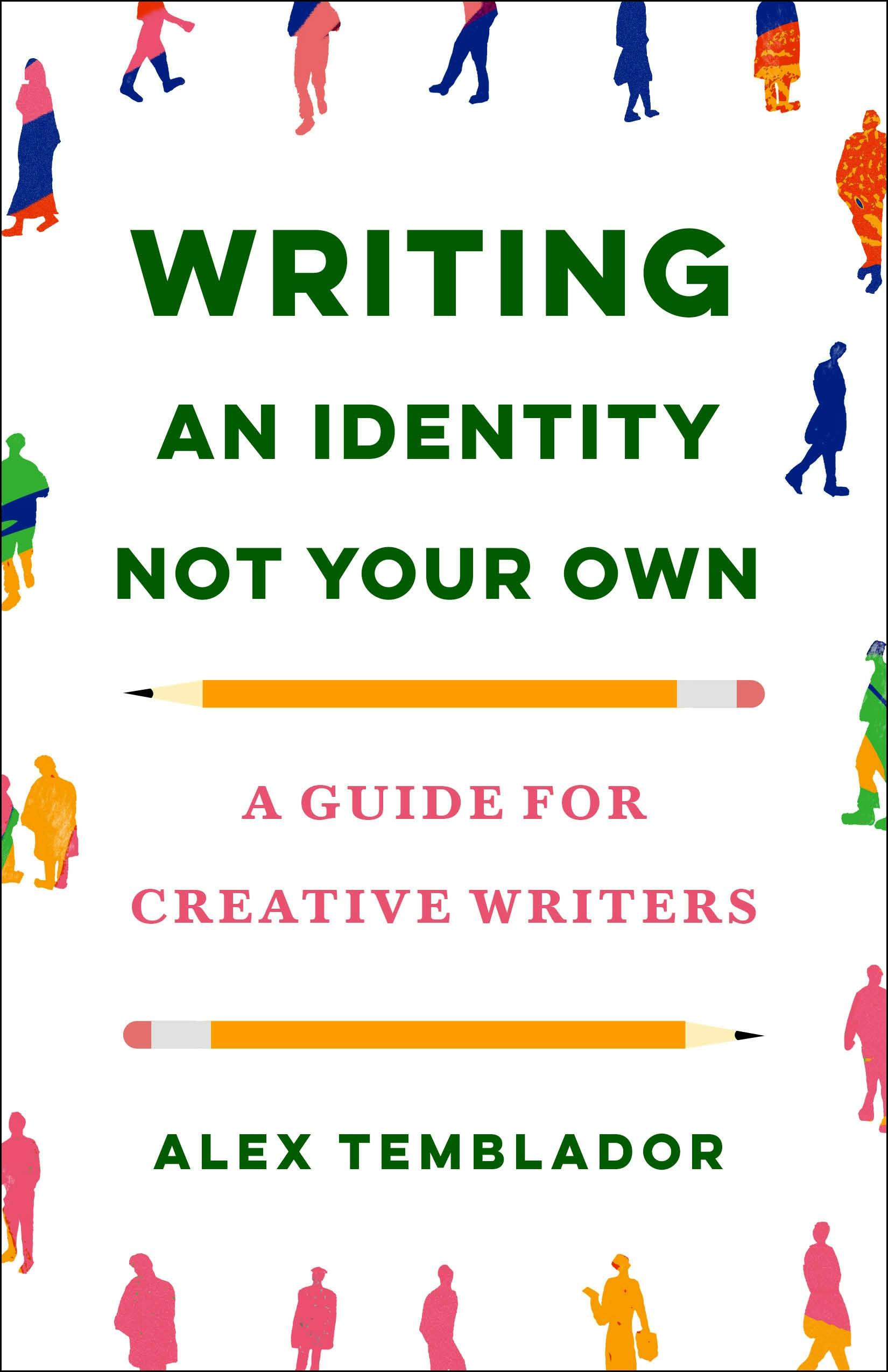 How do you keep yourself from being overwhelmed with the continual learning process?
How do you keep yourself from being overwhelmed with the continual learning process?
I say this in the book: you're going to make mistakes. I made mistakes writing this book, and I know that because I'm recording the audiobook right now, and I'm like, oh, that's a little change I want to make. If I'm going to be a writer and I'm going to ask people to accept the fact that they make mistakes, that I also have to accept that fact. I also know that I am 34 years old, so there's no way that I have unpacked all of my biases. That's a lifetime commitment. So I have to expect that it's going to be in my writing practice, too.
I have to be diligent. I have to be mindful. I have to continue my self-education. And I hope when readers get this book, they realize that if you're going to take this on, that's something you're going to have to do as well.
Do you have a favorite writing exercise?
The one in chapter four, where it's basically building the character out. I don't even use half this stuff in the work that I write, but if I know that they lived in an apartment and now they live in a mansion, that's going to impact my character's perception of the world. I tend to find that when I'm writing, fiction especially, I can't get to the end unless I know what drives my character, and usually what drives them are their fears and their joys. To build them out, I need to know their quirks, their hobbies, their relationships. So that exercise is my favorite. Sometimes I'll write half a book, and then I'm like, okay, I should have done this at the beginning. Let me go back and do this because it's going to help me to push the book forward and showcase who they are.
Do you think that writing this book has had an impact on your own writing process?
Since writing this book, I needed a lot of time off. I needed some space to think about what I wanted to write and how I wanted to continue in my career as a fiction writer. I am going a little slower, which is nice. I'm being more mindful, and I can see my mind working as I'm writing.
I would probably say that if people pick this up, and they've never thought about this before, they're going to do better in the editing phase. It might take a little time for you to recognize what you're doing while you're writing because you get so much in the zone. So, I do like that it makes me slow down. Since writing this book, I have told myself I want to see if I can create something very magical, and joyful, and happy, and focus on those aspects of writing my own identity and some different identities as well. I'm being more intentional now than intuitive. I think that's going to be good, or at least I'm going to learn something from doing it this way.
If you could have your readers take two things from your book, what would they be?
I'm thinking about something I said at the end of the book: it is okay to write other identities. It's okay to experiment, it is okay to write something and put all your heart in it. It is also okay to let something die. It's also okay to admit that this isn't ready, or it should never be published. Or never be shared. Because it's okay not to share things with the world, if it's just not ready. That's probably one of the big things, because I don't think we need to continue to do harm to historically marginalized identities.
The other thing I would say, and maybe this goes a little bit against what I said earlier, but editing is where it's at. It's great if you recognize your mistakes or your biases while you're writing. But you can actually do a ton of work in the editing process. It's my favorite part--the writing is hard to get through; the editing is the best because you get to shape your story, but you also get to catch everything that you missed. It's where other people are able to help you catch things you missed. And I hope that people take advantage of other people's perspectives. Ask for feedback, ask for that community help. I don't think we're going to get through this change in the industry or in creative writing without all of us working together as a community to give each other checks and balances. If you make a mistake, admit you made a mistake. Be very open and honest about it and do everything you can to fix it. That's definitely a big thing I would have people take away from it. --Michelle Anya Anjirbag
Book Candy
Book Candy
Author Tommy Orange has been selected as the next Future Library writer, the Guardian reported, noting that his manuscript won't be published until 2114.
---
Mental Floss suggested "13 little-known punctuation marks we should be using."
---
"Behold the Kräuterbuch, a lavishly illustrated guide to plants and herbs from 1462," courtesy of Open Culture.
Rediscover
Rediscover: Stanley Moss
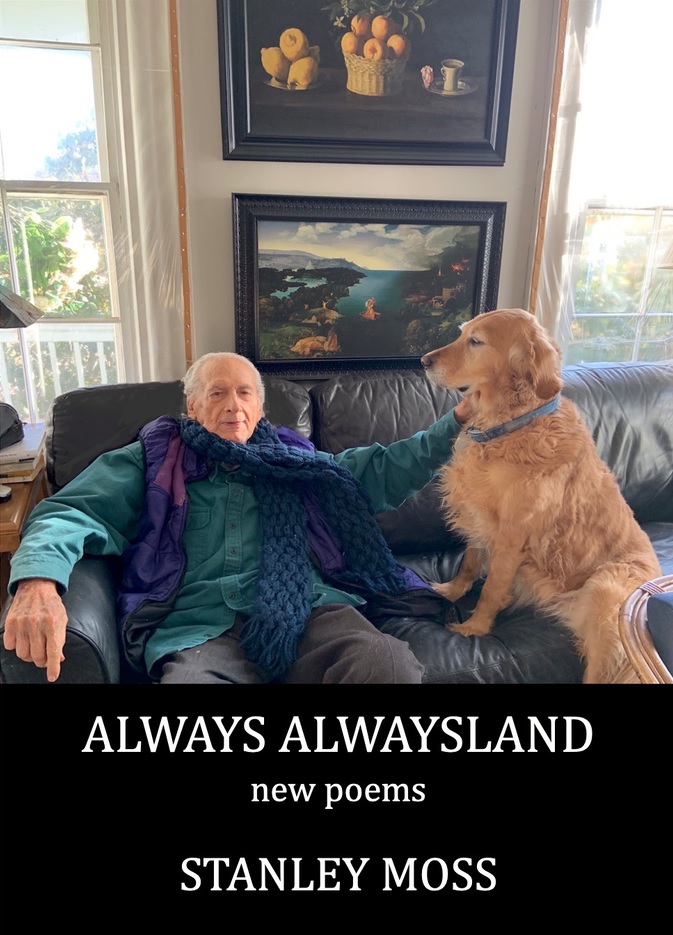 Stanley Moss, a "lyrical American poet who for seven decades evoked a troubled world of sorrows and sensual pleasures ruled by a silent God seemingly indifferent to the fate of humanity," died July 5 at age 99, the New York Times reported. Moss sold his work to periodicals for 20 years before his first collection, The Wrong Angel, was published in 1966. He eventually published 16 poetry collections, the last of which was Always Alwaysland, released on his 97th birthday.
Stanley Moss, a "lyrical American poet who for seven decades evoked a troubled world of sorrows and sensual pleasures ruled by a silent God seemingly indifferent to the fate of humanity," died July 5 at age 99, the New York Times reported. Moss sold his work to periodicals for 20 years before his first collection, The Wrong Angel, was published in 1966. He eventually published 16 poetry collections, the last of which was Always Alwaysland, released on his 97th birthday.
His other books include The Skull of Adam (1979), The Intelligence of Clouds (1989), A History of Color: New and Collected Poems (2003), Songs of Imperfection (2004), God Breaketh Not All Men's Hearts Alike (2011), It's About Time (2015), Almost Complete Poems (2016), Abandoned Poems (2018), Act V, Scene I (2020), and Not Yet (2021).
In 1948, Moss became an editor at New Directions, and was later a drinking friend of the poet Dylan Thomas. Moss, who spoke Italian and Spanish, lived in Rome in the 1960s and early '70s. He was a contributing editor for the Rome literary journal Botteghe Oscure and taught English in Rome and Barcelona. In New York in 1977, he founded Sheep Meadow Press, which published poetry books by Hayden Carruth, Stanley Kunitz, Stephen Berg, and others, the Times noted.
In 1969, Moss befriended the heirs of an Italian nobleman who, after his death, had left a trove of Spanish and Italian old master paintings. Starting as an agent for the nobleman's heirs, Moss began selling art to major museums and became prosperous enough to finance his life as a poet.
"When I started selling art, I had no money or training," he said in a 2005 interview. "I have a gift for finding old masters. I have discovered pictures that now hang in the Louvre that I bought for nothing. It takes taste and brains.... How do I balance my careers as a poet and a dealer? I have the advantage of not having to sleep much."
"Moss may or may not be accurately termed a religious poet," the British poet Carol Rumens wrote in the Guardian in 2015. "If he's a religious poet, he's one of the too-few irreligious kind, firmly of this world in his vivid pleasures and sorrows, joyfully harrying God from myth to unsatisfactory myth, denomination to denomination, fascinated by the whole subject of deity but hardly expecting a catch or kill."
| Advertisement Meet belle bear! |



